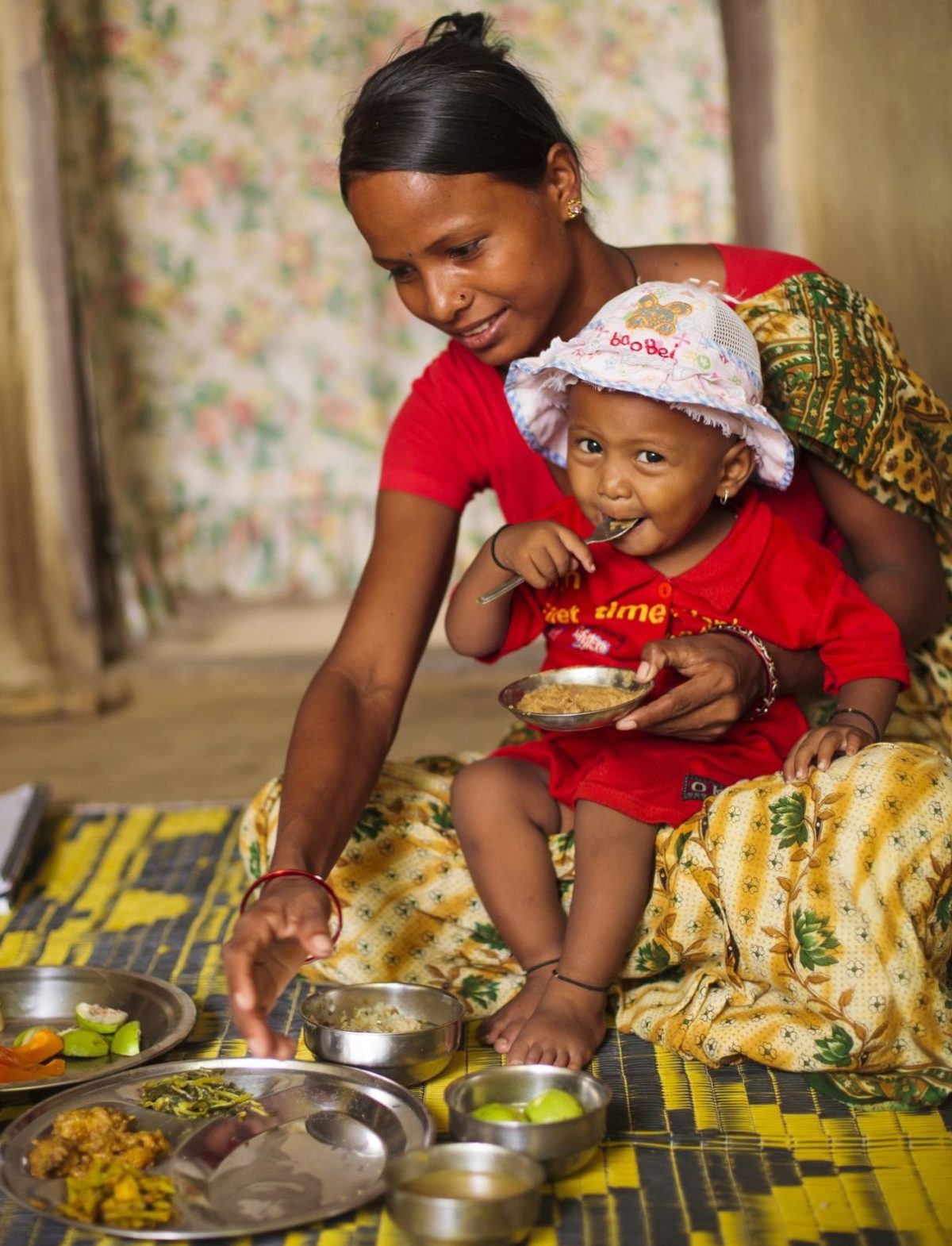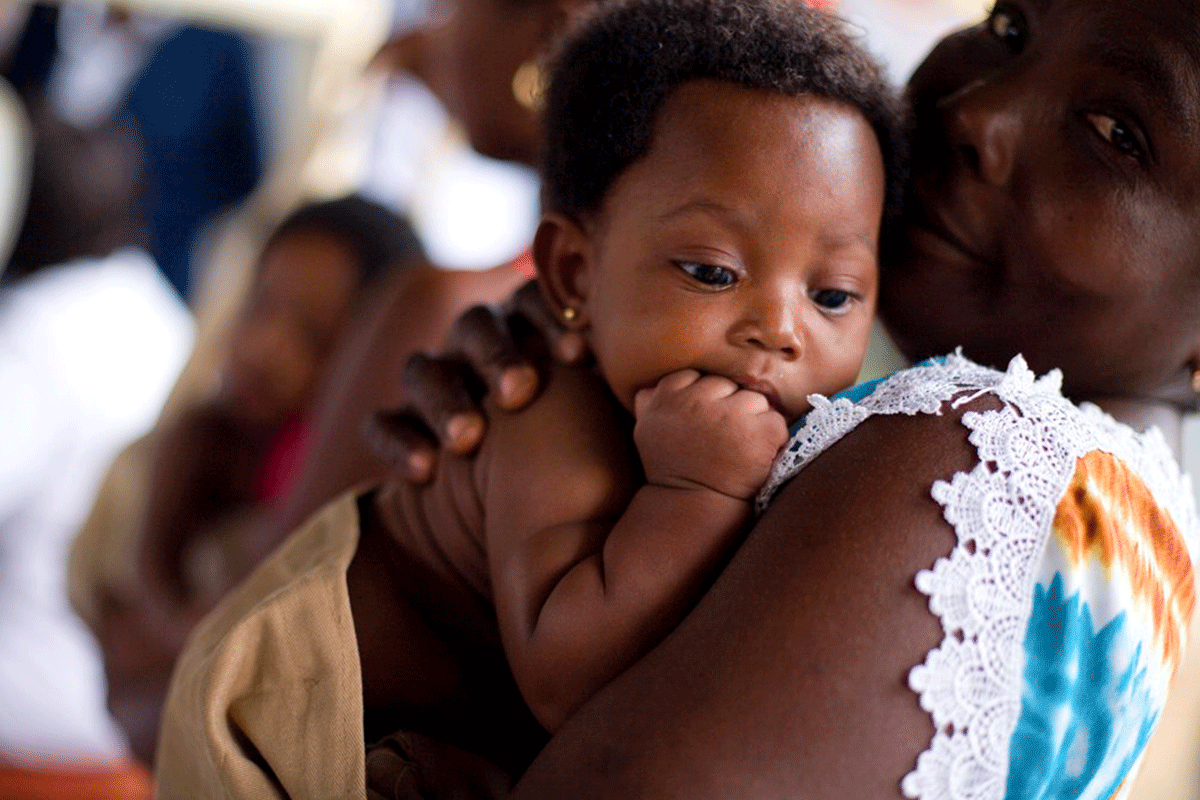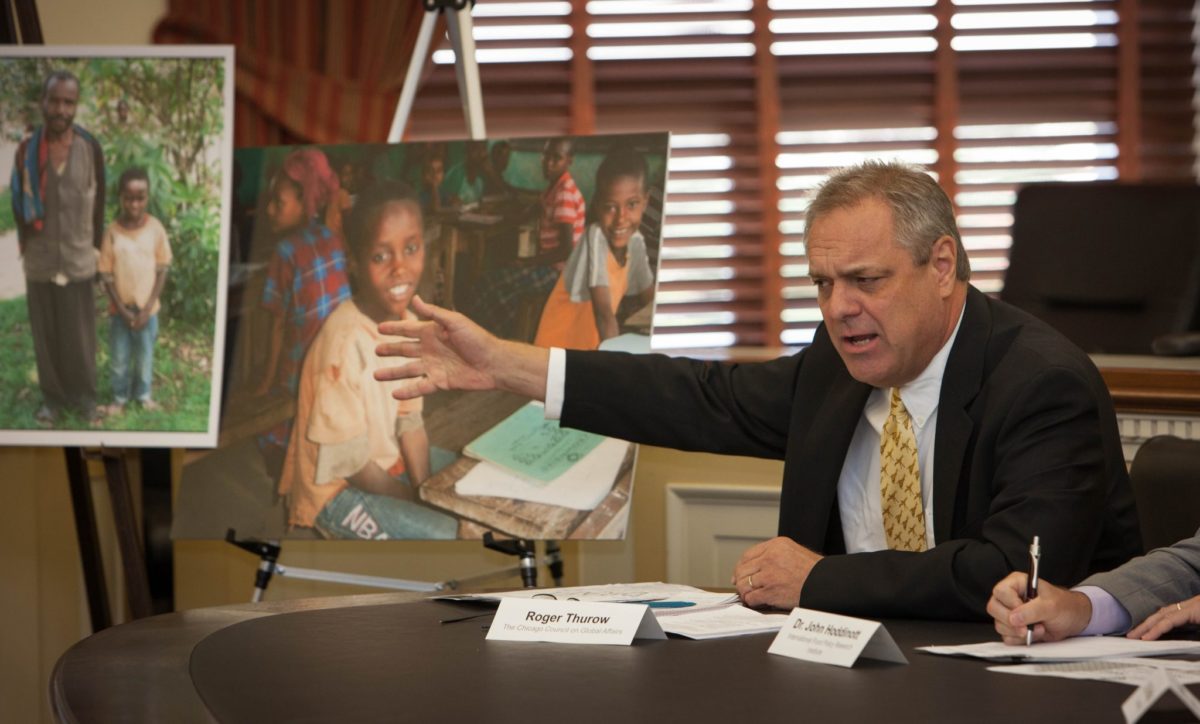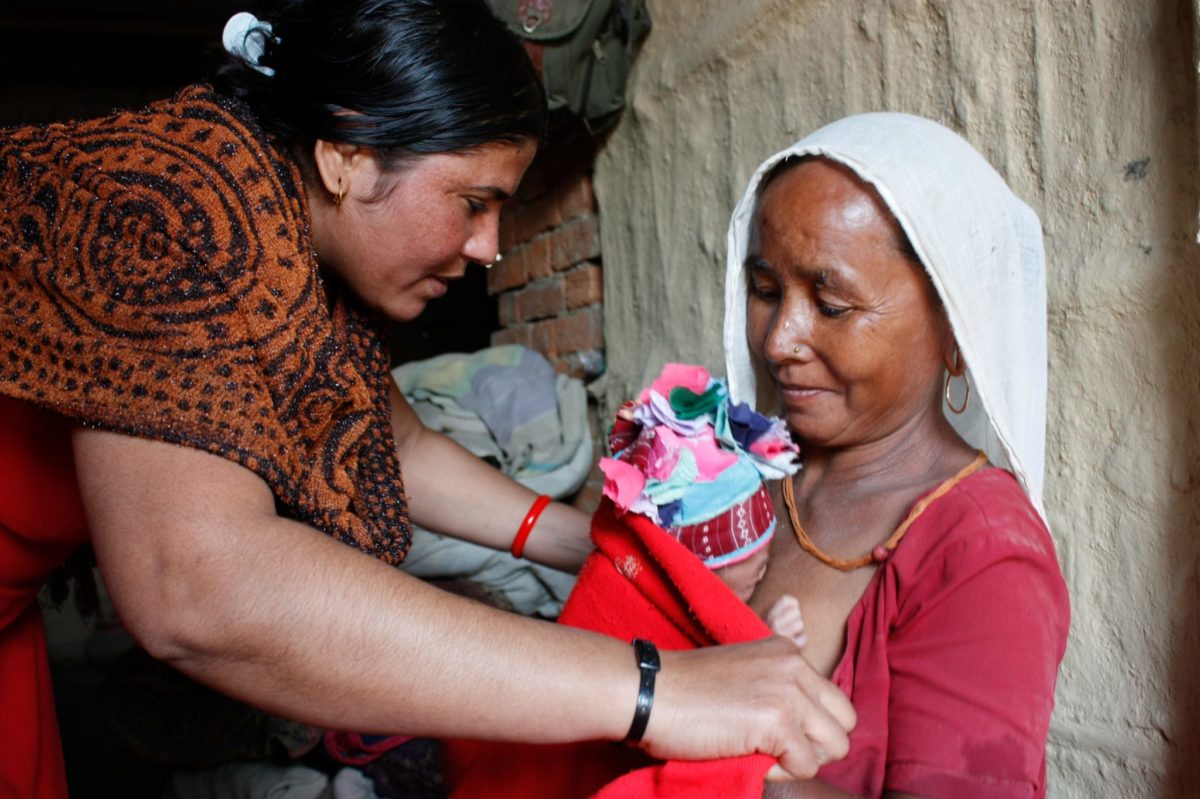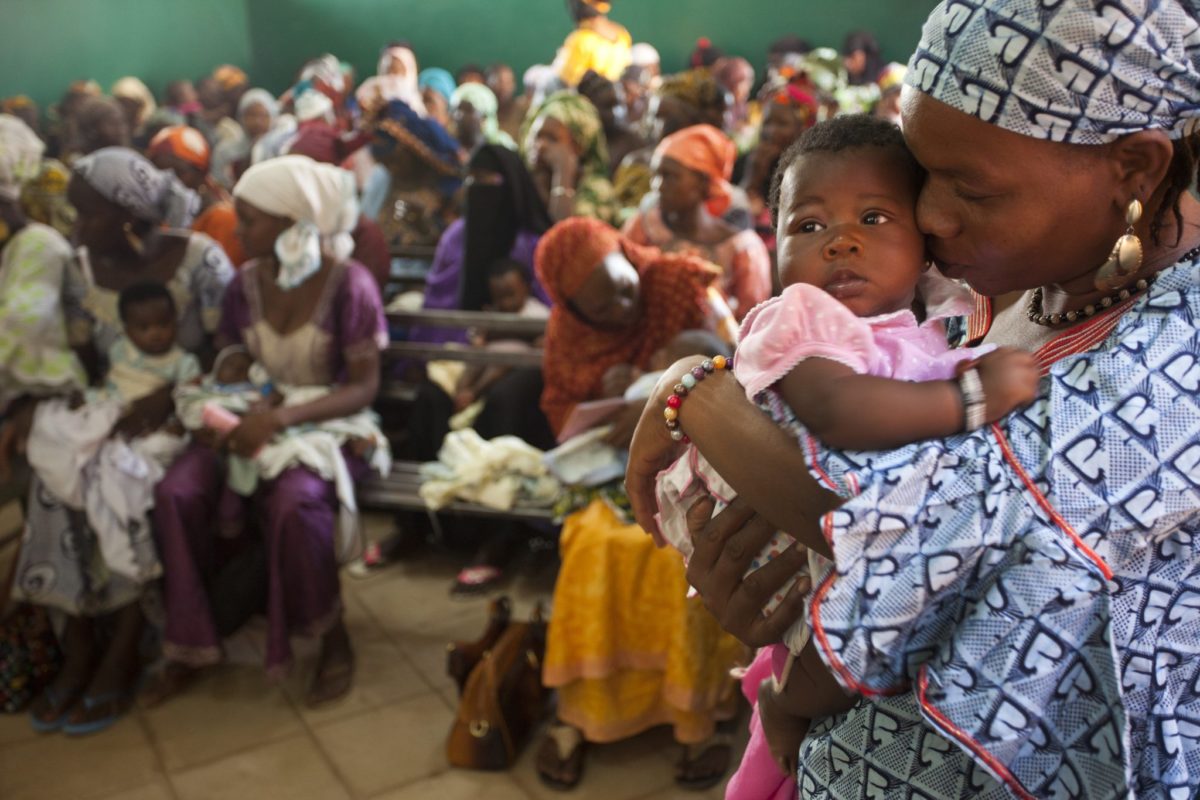Thank you, Chairman Smith, Ranking Member Bass, and distinguished Members of the Committee for inviting me to testify today on this this very important and very timely topic. Thank you for your steadfast support of agricultural development efforts, and for raising the clamor about famine in your resolution. And thank you for this opportunity to testify about the causes and consequences of famine. That this medieval suffering continues now into the second decade of the 21st century is, I believe, the biggest stain on the world’s conscience.
I have witnessed famine and hunger crises, unfortunately, many times in my four decades as a journalist—first as a foreign correspondent with The Wall Street Journal and now as a senior fellow for the Chicago Council on Global Affairs and author of three books on hunger and malnutrition in the 21st Century.
My first travels in the hunger zones of Africa came during the Ethiopian famine of 2003, when 14 million people were on the doorstep of starvation. It was the first great hunger catastrophe of our grand new Millennium. On my first day in Addis Ababa, the capital, I met with World Food Programme workers who were scrambling to provide relief as the hunger spread. One of them gave me this piece of advice, which to me sounded like an ominous warning: “Looking into the eyes of someone dying of hunger becomes a disease of the soul. For what you see is that nobody should have to die of hunger.”
Certainly, not now, not in the 21st century when so many scientific and technological achievements are literally at our finger tips. The next day, I stepped into an emergency feeding tent filled with dozens of starving children and their parents—and I looked into their empty, lifeless eyes. What I saw did indeed infect my soul, like a disease. In addition to the immense human suffering, I saw resignation and defeat of the farmers who had lost everything. I saw families on the move—abandoning homes and hope. I saw communities shattered, an entire generation, the children, vanishing in their parents’ arms. From the women, I saw that the deepest form of misery was to be a mother unable to stop the crying of a hungry child.
For me, it was impossible to see and not act. Thus, as a journalist, an author and senior fellow at the Council I continue to write and write and write about hunger and malnutrition. I believe that those of you who recently traveled to South Sudan and Uganda also looked into the eyes of the hungry. And thus, with similarly diseased souls, I imagine you too feel compelled to act about hunger and malnutrition.
What propels my writing—and, I’m sure, your action—is the firm conviction that things don’t have to be this way. Yes, droughts will occur. Conflicts will rage. Corruption will complicate relief efforts. But starvation and famine can be avoided. Timely humanitarian response with food aid, and water, and shelter, and medical assistance, is absolutely necessary to reduce the suffering and save lives. I’ve seen it happen, heroically, with American leadership.
Emergency responses and food aid are crucial action now, but it alone won’t prevent the next famine. This we must acknowledge and remember. The next famine will only be prevented by long-term agricultural development investments—the investments that give farmers, particularly small-scale farmers, and their families resiliency against climate and economic shocks, that provide food security, that reduce conflict, that promote economic prosperity, that spread hope of better futures. The kind of investments we’ve seen under Feed the Future, made possible by the Global Food Security Act—which the Chairman staunchly championed and continues to do. Thanks to the long arc of American leadership in the post-World War II era, progress has been made on reducing hunger and malnutrition and stunting—and the 114th Congress can now add its name to that long and storied list after passing the global food security act. Now is not time to retreat. Exactly seventy years ago this month, with hunger looming in Europe after the war, the Marshall Plan was launched and now the EU is our largest trading partner. Today, famine and hunger on a scale rarely seen in Africa and the Middle East call us to act.
We know these investments in agricultural development work. The programs that have been in play on the ground in Ethiopia since the 2003 famine have created a resiliency that has the country better prepared to combat the current drought, better than its neighbors. According to new USAID evidence, Ethiopian households reached by US agricultural development programs were far more resilient than their neighbors, both within Ethiopia and in surrounding countries, to maintain their food security in the face of an historic drought.
I have seen the benefits of agricultural development investments myself. In my books, I have followed farmers and their families over time. As harvests improve, as surpluses grow, the hunger season wanes. Malnutrition disappears. Children stay in school longer—I have seen families celebrate high school and even college graduations because of increased prosperity from agricultural advancement. The farmers become more entrepreneurial, eagerly expanding their operations to feed not only their own families but their communities and their countries as well. They no longer strive merely to survive, but to robustly thrive.
Ending hunger wherever it may be is certainly the right thing to do—and that should motivate us all. We’re told by the World Food Programme that today about 5.4 million children are dangerously malnourished and more than one million are at risk of starvation during the current famines raging in Africa and the Middle East, and that without sufficient and timely relief, up to 600,000 children are at imminent risk of death in the coming months. That’s shocking and unconscionable.
Doing what we can to prevent those deaths and end that suffering is also the smart thing to do. For famine isn’t just something that happens “over there” somewhere. Famine impacts all of us. The economic ripples of hunger and malnutrition are powerful and long-lasting—they roll over time and space. Even though a famine may end, the costs continue to accumulate. The most pernicious impact of any hunger crisis—along with the lives lost—is what becomes of those who survive.
The impact is greatest on women and children, particularly in the first 1,000 days—the time from the beginning of a mother’s pregnancy to the second birthday of her child. Any lack of food, any bout of malnutrition, often leads to stunting—physically and cognitively. Stunting is a life sentence of underachievement and underperformance. Currently, in our world today, one in every four children under the age of five is stunted. One in four children. Think about that.
The toll on the individual, the family, the community are profound in the loss of education and labor productivity over time—for a stunted child becomes a stunted adult. Collectively, the problem weakens our trading partners, limits global opportunities. Childhood malnutrition and stunting can cost individual countries 8-10-12% of their annual GDP according to the World Bank. The World Bank also estimates the costs to the global economy at $3.5 trillion annually in lost productivity, higher health care costs, and lessened trade—that is “trillion” with a “T.”
Those are big numbers. But perhaps the greatest cost of childhood malnutrition and stunting are immeasurable: A poem not written. A gadget not invented. A horizon not explored. An idea not formed. An innovation not nurtured. A cure not discovered. What might a child have contributed to the world if he or she hadn’t been stunted? You see, a stunted child anywhere becomes a stunted child everywhere.
In closing, I’ll return briefly to Ethiopia. During the 2003 famine, the first eyes of a starving child I looked into belonged to a 5-year-old boy named Hagirso. He had withered away to skin and bones, the doctors and nurses worried that he might not survive. What I saw that day continued to haunt me. I often wondered whatever happened to Hagirso? Ten years later I returned to the scene of that awful famine. I was delighted to find that Hagirso had survived. But he clearly wasn’t thriving—he was severely stunted, physically and cognitively. At 15 years old, he only came up to the bottom of my rib cage. And he had just begun attending first grade classes, learning the alphabet.
For me, he is the embodiment of what is at stake when we allow famines to continue. What might this child have accomplished were he not stunted? A lost chance at greatness for one child is a lost chance for us all.
That is what compels us to act today. The American imperative to lead the way to the end of hunger and malnutrition and stunting abides, stronger than ever.


